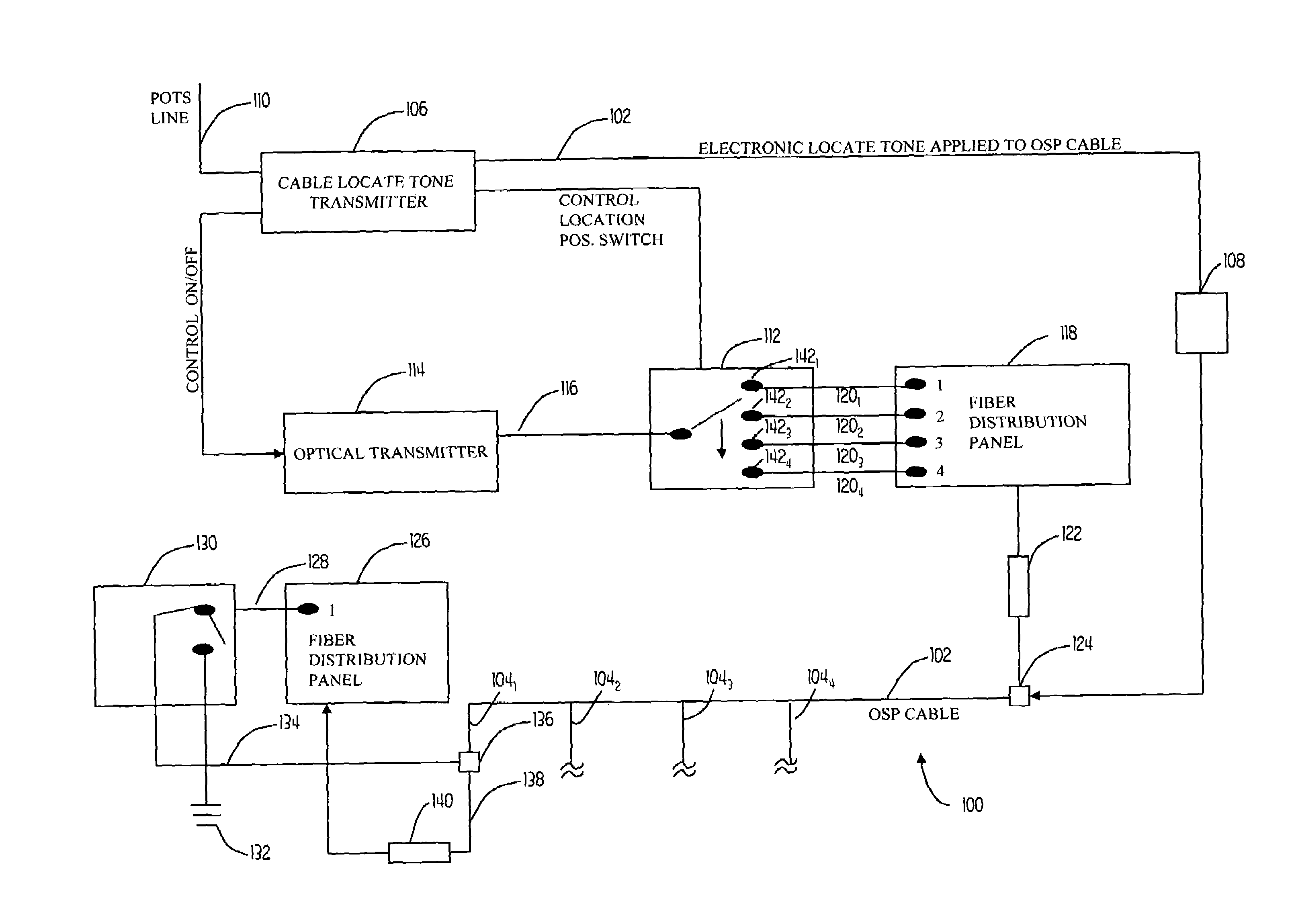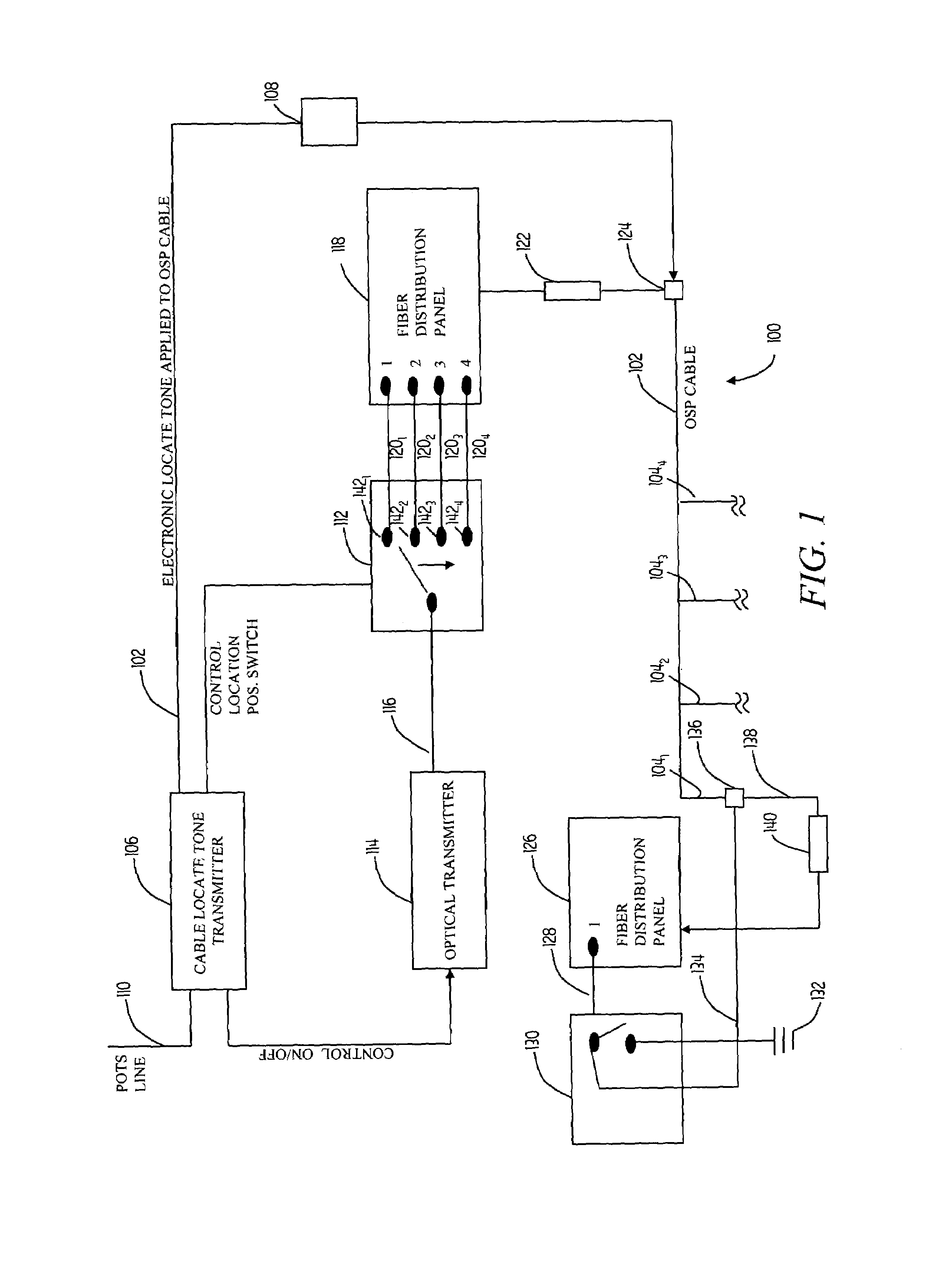Ground control unit for cable locating
a control unit and cable technology, applied in the direction of instruments, measurement devices, scientific instruments, etc., can solve the problems of low strength locating signal, high cost of locating signal generators, and difficult locating of such a side-leg cable, so as to reduce plant protection time and increase maintenance personnel's efficiency.
- Summary
- Abstract
- Description
- Claims
- Application Information
AI Technical Summary
Benefits of technology
Problems solved by technology
Method used
Image
Examples
Embodiment Construction
[0012]FIG. 1 depicts a schematic diagram of an exemplary telecommunications system 100 that includes a long-haul (backbone) outside the plant (OSP) fiber optic cable 102 coupled to a plurality of short-haul side-leg cables 1041, 1042, 1043, and 1044 (collectively “side-legs 104”). The side-legs 104 each serve a respective customer location 1-4. The backbone cable 102 typically comprises a buried fiber optic cable that includes one or more individual optical fibers and a metallic sheath (not shown). The side-leg cables 104 each run from the backbone cable 102 to a separate telecommunications facility at the customer locations (not shown). The long-haul and short-haul cables are also referred to as utility conveyances as will be appreciated by those skilled in the art. Although four side-leg cables 104 are depicted in the illustrative drawing, the cable route could include a larger or smaller number of side-leg cables and corresponding customer locations.
[0013]To enable the location o...
PUM
 Login to View More
Login to View More Abstract
Description
Claims
Application Information
 Login to View More
Login to View More - R&D
- Intellectual Property
- Life Sciences
- Materials
- Tech Scout
- Unparalleled Data Quality
- Higher Quality Content
- 60% Fewer Hallucinations
Browse by: Latest US Patents, China's latest patents, Technical Efficacy Thesaurus, Application Domain, Technology Topic, Popular Technical Reports.
© 2025 PatSnap. All rights reserved.Legal|Privacy policy|Modern Slavery Act Transparency Statement|Sitemap|About US| Contact US: help@patsnap.com


